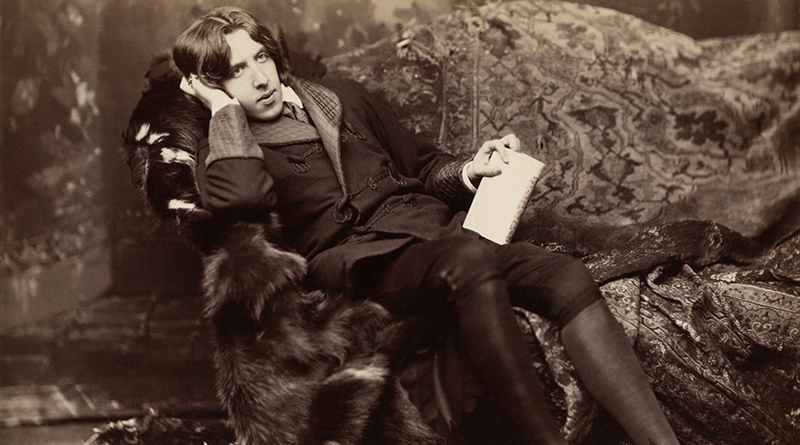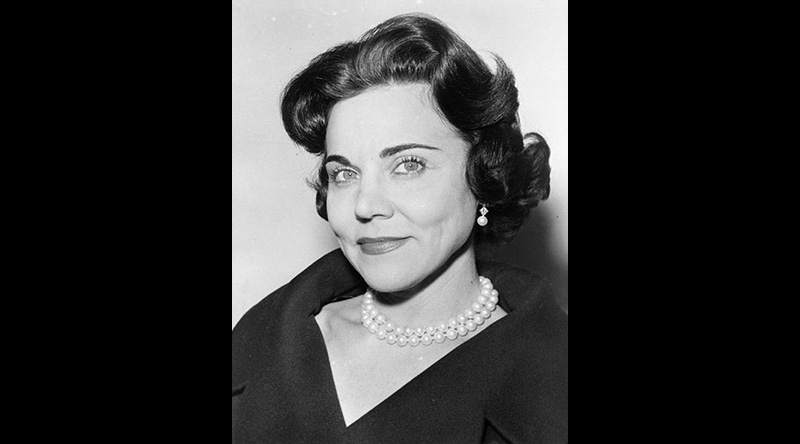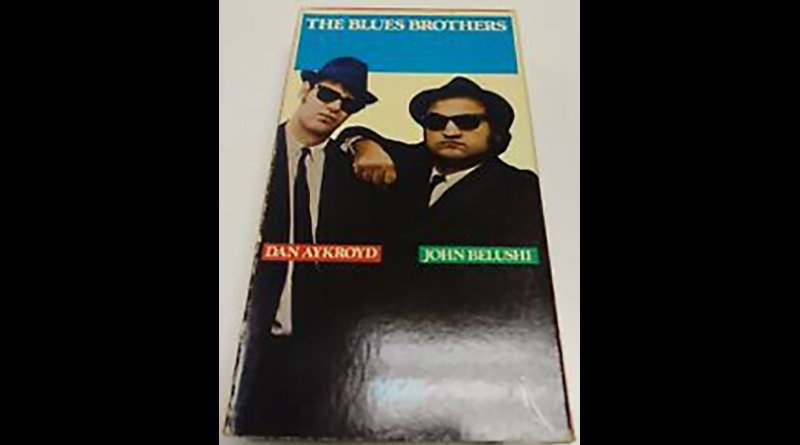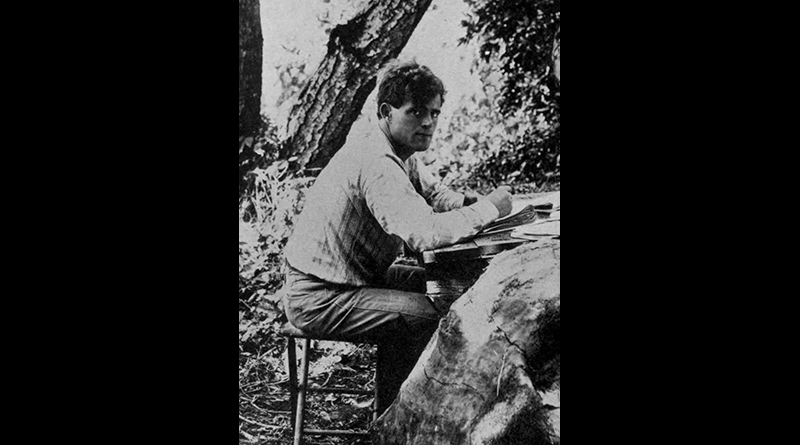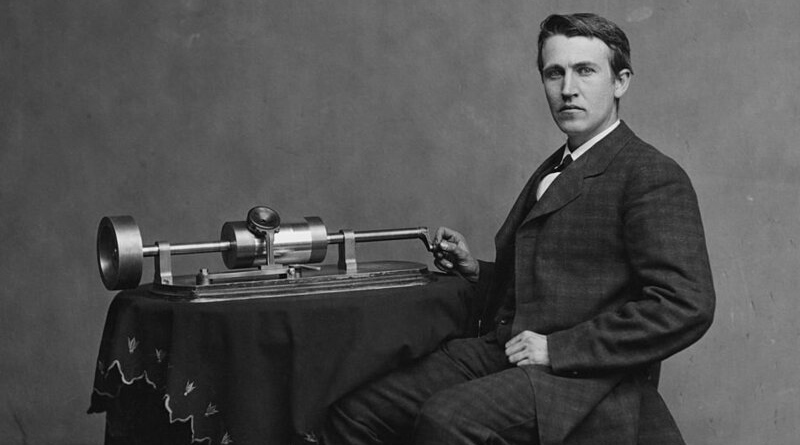One Sunday afternoon, aged twelve, while my father was safely at work in the stable block ‘over the way’, I watched on the little television Anthony Asquith’s film version of The Importance of Being Earnest. I vividly recall sitting on an uncushioned wooden kitchen chair, face flushed, mouth half-open, simply astonished at what I was watching and, most especially, hearing. I had had simply no idea that language could do this. That it could dance and trip and tickle, cavort, swirl, beguile and seduce, that its rhythms, subclauses, repetitions, clausulae and colours could excite quite as much as music.
The following Thursday I stood then, the only customer (lender? user? what was the word then?), fretfully at the corner of the lanes, waiting for the battleship-grey mobile library to hove into view. The driver lurched the van, of the kind that I think used to be called a pantechnicon, to a halt, came round to open the door and lower the steps and tousled my hair and patted my bum as I ascended (as adults were quite rightly allowed to do in those days without being hauled up before the courts and having their houses set fire to). The librarian, a becardiganed, multi-beaded old dear, was also apt to ruffle my hair. She often told me that I read so many books I would soon grow into one. For a child to read books, especially in the summer, was looked on as very peculiar and, of course, unhealthy, something I had always been used to being considered on account of my loathing of all forms of organized games and sports.
‘Have you,’ I asked her breathlessly, ‘ever heard of a play called The Importance of Being Earnest?’
‘Why yes, my love, that’s just up there, I think.’
It was far from the largest drama section you have ever seen in a library. A smattering of Shaw, Priestley and Shakespeare, but also — marvellously — the collected comedies of Oscar Wilde. She stamped the book out with that splendid springing, spanking sound that will never be heard on these shores again. It had last been lent, the previous stamp showed me, in 1959. I thanked her, dismounted in a bound, flew up the lane, round the rear of the house, up the back stairs and into my bedroom.
Lady Windermere’s Fan, A Woman of No Importance, An Ideal Husband, The Importance of Being Earnest. I read them all again and again and again until a fortnight later, when I found myself once more restlessly pacing the corner of the two lanes.
‘Have you anything else by Oscar Wilde?’
‘Well, now, I aren’t rightly sure…’ she lifted her reading glasses from the delicately linked silver chain that hung round her neck, pushed them to her nose and came around the desk to inspect the shelves as if for the first time. ‘Ah, now, there you go.’
The Complete Works of Oscar Wilde. This was more, so much more than I could possibly have hoped for. Once again I flung myself on my bed and started to read. Some of the dialogues written in the Socratic style in essays like ‘The Decay of Lying’ and ‘The Critic as Artist’ confused me a little, and parts of ‘The Soul of Man Under Socialism’ were quite beyond me. The poems I frankly disliked, save for ‘The Ballad of Reading Gaol’, which seemed an odd subject for such a glamorous and flowing lord of language to have chosen. The stories for children made me weep, as they do to this day, and The Picture of Dorian Gray touched a part of me that I couldn’t quite define but disturbed and excited me very deeply indeed. ‘De Profundis’, too, I found beautiful, but puzzling. I wasn’t sure what the allusions to ‘prison’ and ‘shame’ and ‘scandal’ and so on were supposed to mean. Indeed, I assumed the letter to be a work of fiction that held some allegorical meaning beyond my reach.
I kept this collection for four weeks, and the cosily obliging librarian waived the late return penalty of sixpence when I at last brought it back to the mobile library. I asked if she had anything else by this Oscar Wilde.
She pointed at the book. ‘If that says “The Complete Works”, then I should think that’s the complete works, wouldn’t you, young man?’
‘Hm.’ It was hard not to see the justice of this. ‘Well, do you have anything about him, perhaps?’
Her soft, powdered cheeks pinkened a little, and in a rather quavery voice she asked me how old I was.
‘Oh, I’m a very advanced reader,’ I assured her. Being tall and with a voice that never broke but slowly deepened, I could usually pass as older than my real age; at this time, unless memory plays me false, I had just turned thirteen.
‘We-ell…’ she fossicked about the lower shelves and came up with a book called The Trials of Oscar Wilde by an author called H. Montgomery Hyde.
The book was like a kick in the teeth. A kick in the gut. A kick in the groin. A kick most especially in the heart. After reading about the character of this brilliant, engaging, gentle, exceptionally kind and quite remarkably gifted Irishman, to discover the truth of the sudden and calamitous third act of his life, the three trials (it is often forgotten that following the legal action he foolishly took against the Marquess of Queensberry, there were not one, but two criminal trials against him, after the first ended in a deadlocked jury), the exile and the squalid and unhappy travels and subsequent penurious death in Paris, all this was almost more than I could bear.
Yet.
Yet it also confirmed in my deepest heart something that I had always known. That he and I shared a similar ‘nature’, as he would say, or ‘sexuality’ as we would call it today.
My heart was wrenched by the story of Oscar. The mobile library was no longer enough. The only place for me now was Norwich City Library, twelve miles away. Sometimes I had the energy to bicycle, sometimes I took the daily coach that stopped at that same meeting of lanes at twenty to seven every weekday morning.
Before the internet and Berners-Lee’s miraculous World Wide Web, the closest you came to metadata or hyperlinks were the bibliography and the index cards in the wooden drawers of a library catalogue.
I started by seeing what else this Montgomery Hyde had written. The Love That Dared Not Speak Its Name was one book. The Other Love was even more astonishing. I found myself endlessly in Norwich City Library, scribbling down names from the bibliographies at the end of each non-fiction book (bibliographies are the lists of titles and writers that the author has used as sources) and then haring to the catalogues to see if the library might hold a copy of anything related to a newly acquired lead to the world of forbidden love. Through such means I learned about the infamous Baron Corvo, aka William Rolfe, and his eye-popping, trouser-shifting ‘Venice Letters’, Norman Douglas, T. C. Worsley, ‘Y’ (an anonymous gay autobiographer), Robin Maugham, Angus Stewart, the scandalous Michael Davidson, Roger Peyrefitte, Henry de Montherlant, Jean Genet, William Burroughs, Gore Vidal, John Rechy and dozens and dozens of others. It was the equivalent of clicking on web links, more cumbersome and time-consuming, of course, but breathlessly exciting. Along the way, as a happy accident, I acquired a kind of alternative literary education that ran in parallel to the one I was receiving at school. You cannot read Genet or about him without encountering (the entirely heterosexual so far as we know) Jean-Paul Sartre, and you cannot brush up against Robin Maugham without making the acquaintance of Paul Bowles and the Tangier set. Burroughs leads to Denton Welch, Corvo to the Bensons, Ronald Firbank, Stephen Tennant, Harold Acton and so on until by fortuitous and serendipitous circumstances, fuelled by inner erotic curiosity and stimulation, I found a world of artists and writers, straight and gay, who were their own reward.
Suppose I had been born in the 1980s? All the vindication and support I might ever have needed to make me comfortable about my sexuality could have been found in television programmes like Queer as Folk, by the pioneering gay kisses on EastEnders and Brookside, in Pride marches along the streets of London and in the billions of pathways, savoury and unsavoury, offered by the internet. The fact that my childhood, youth and early manhood preceded all of this diversity, freedom, tolerance and openness I, of course, regret to some degree — the brave new gay world would have saved me the doomed feeling I had that my life was inevitably to be one of secrecy, exile, seedy sex shops and the police courts — but I am very, very glad that the only available route to a proud acceptance and endorsement of my gay nature should have come through literature. I think I would always have loved Shakespeare, Keats, Austen, Dickens, Tennyson, Browning, Forster, Joyce, Fitzgerald, what the bluff English master of one of the private schools I attended called ‘the big hitters’, but I cannot thank my sexuality enough for giving me, in my particular case, a love of all reading and an introduction to the gay identity which offered so much more than gaytube and xhamster.com.
— Stephen Fry, in his book More Fool Me

